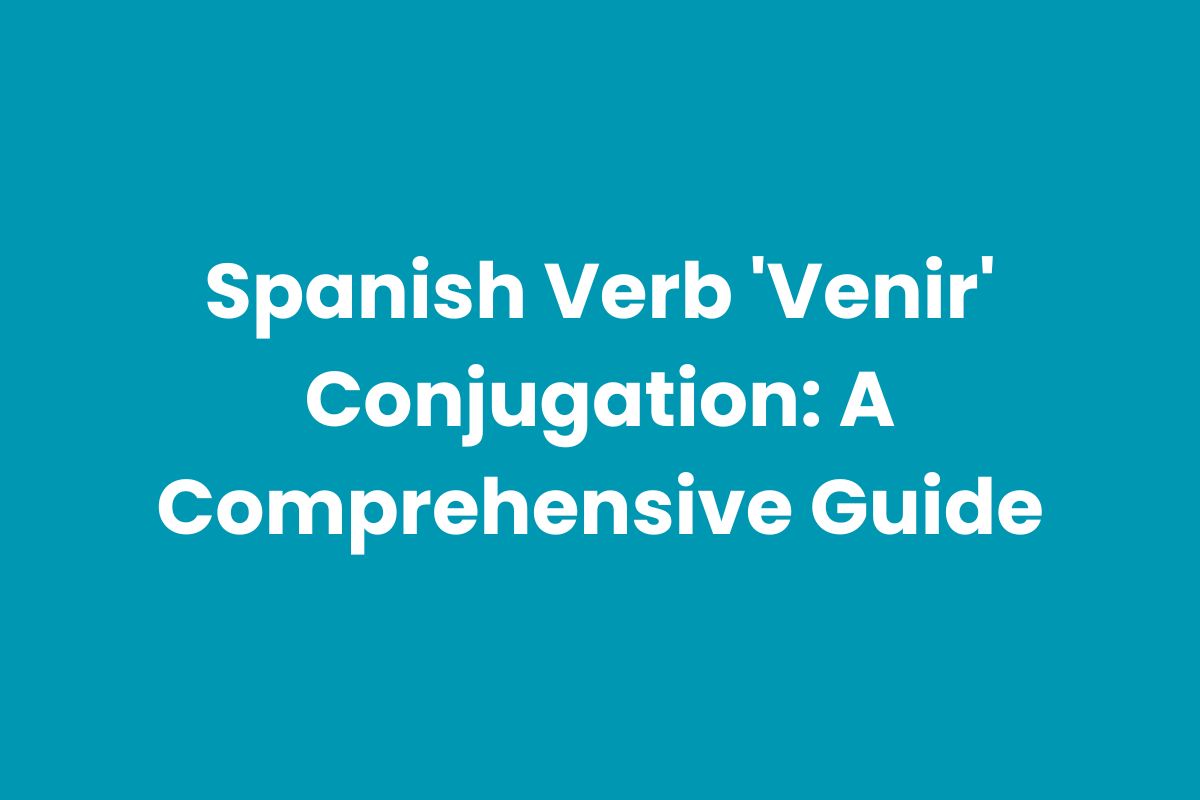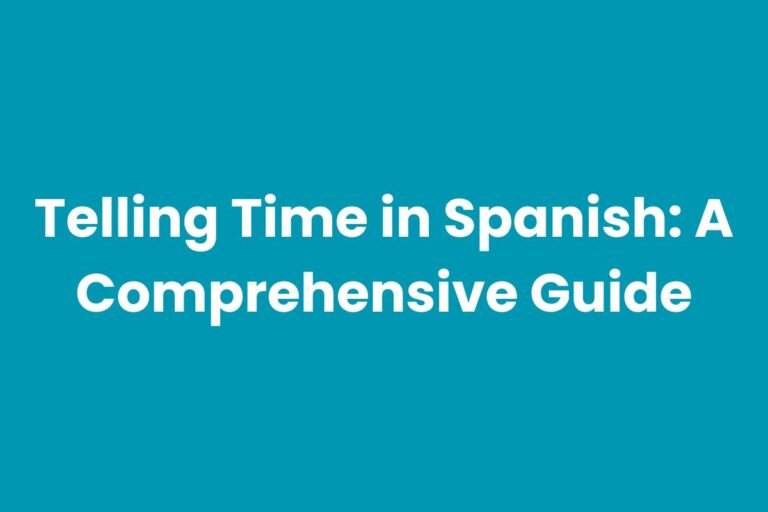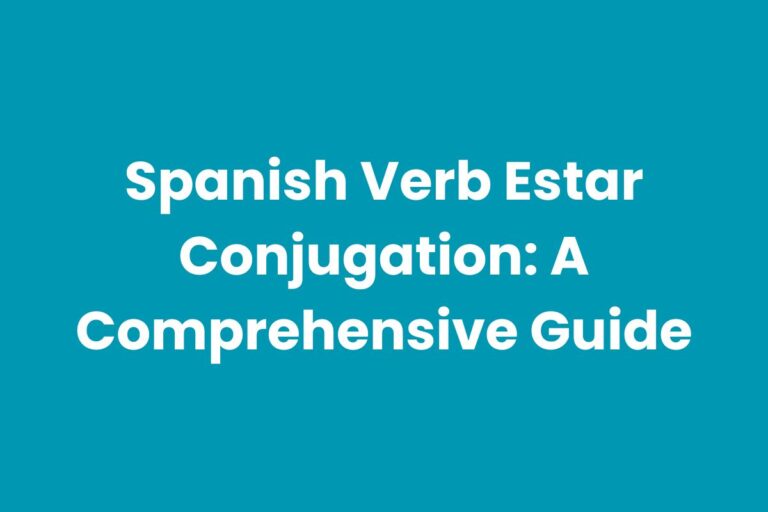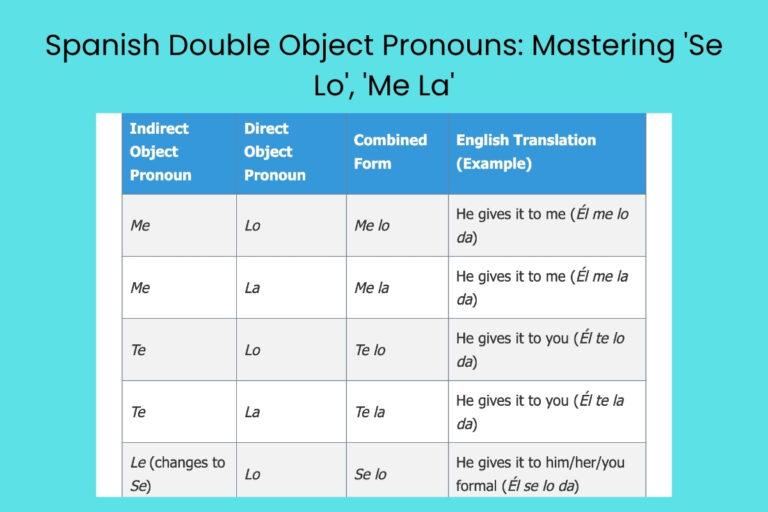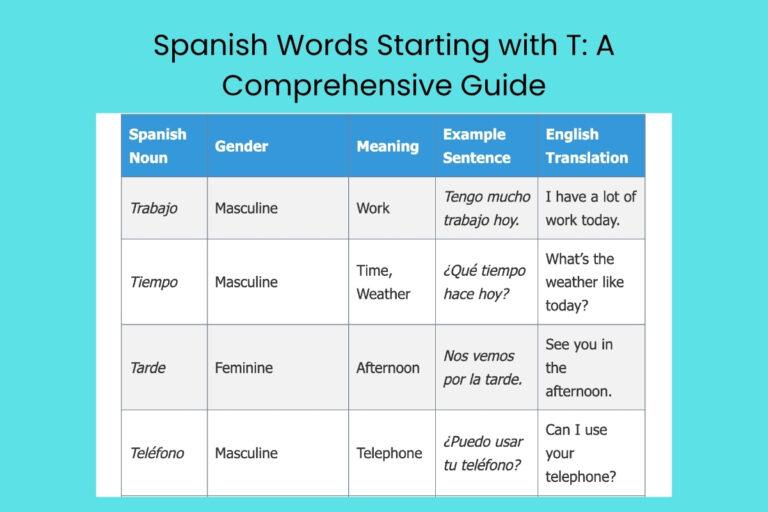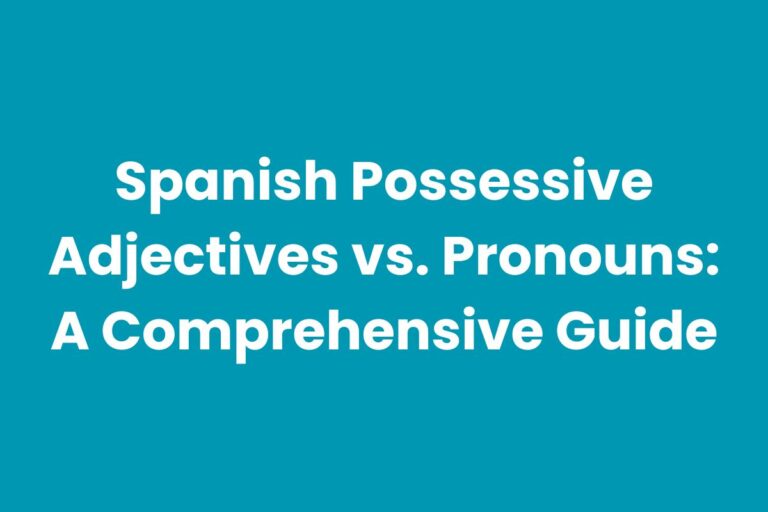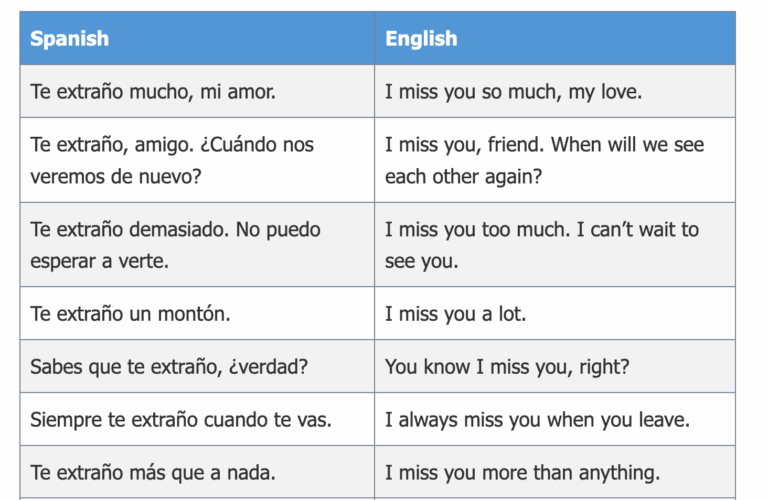Spanish Verb ‘Venir’ Conjugation: A Comprehensive Guide
Mastering the conjugation of the Spanish verb venir (to come) is crucial for effective communication in Spanish. This verb is irregular, making its conjugation a key skill for Spanish learners. Understanding how to properly use venir in various tenses and moods allows you to express a wide range of ideas related to arrival, origin, and future actions. This comprehensive guide provides detailed conjugation charts, examples, and practice exercises to help you confidently use venir in your Spanish conversations and writing, benefiting students, travelers, and anyone seeking fluency in Spanish.
Table of Contents
- Introduction
- Definition of Venir
- Structural Breakdown of Venir
- Principal Parts of Venir
- Indicative Mood
- Subjunctive Mood
- Imperative Mood
- Progressive Tenses
- Examples of Venir in Sentences
- Usage Rules for Venir
- Common Mistakes with Venir
- Practice Exercises
- Advanced Topics: Idiomatic Expressions
- FAQ
- Conclusion
Introduction
The Spanish verb venir, meaning “to come,” is a fundamental verb in the Spanish language. It’s used to express movement towards a place, origin, and future intentions. Due to its irregularity, mastering its conjugation can be challenging for learners. However, a solid understanding of venir is essential for fluency and accurate communication in Spanish. This guide aims to provide a detailed and accessible explanation of venir conjugation, complete with examples and practice exercises.
Definition of Venir
Venir is a Spanish verb that primarily means “to come.” It indicates movement from one place to another, typically towards the speaker or a specific location. Beyond its literal meaning, venir can also express origin, future actions, and certain idiomatic expressions. It is an irregular verb, meaning its conjugation does not follow the standard patterns of regular Spanish verbs. Therefore, learning its specific forms is crucial.
Structural Breakdown of Venir
The verb venir exhibits irregularities in several of its conjugations. The stem changes in the present tense and the preterite tense are the most notable. In the present tense, the stem changes from ven- to vien- in all forms except nosotros and vosotros. In the preterite tense, the stem changes to vin-. These stem changes are essential to remember when conjugating venir. The verb also uses irregular endings in some tenses, further complicating its conjugation. Understanding these patterns is key to mastering venir.
Principal Parts of Venir
Knowing the principal parts of a verb is essential for conjugating it correctly. The principal parts of venir are:
- Infinitive: Venir (to come)
- Past Participle: Vendido (come)
- Gerund: Viniendo (coming)
These parts are used to form compound tenses and other verb forms.
Indicative Mood
The indicative mood is used to express factual statements and objective realities. Here are the conjugations of venir in the indicative mood:
Present Indicative
The present indicative expresses actions happening now or habitual actions.
| Pronoun | Conjugation |
|---|---|
| Yo (I) | Vengo |
| Tú (You, informal) | Vienes |
| Él/Ella/Usted (He/She/You, formal) | Viene |
| Nosotros/Nosotras (We) | Venimos |
| Vosotros/Vosotras (You, informal plural) | Venís |
| Ellos/Ellas/Ustedes (They/You, formal plural) | Vienen |
Examples:
- Yo vengo a la fiesta. (I am coming to the party.)
- ¿Tú vienes al cine? (Are you coming to the cinema?)
- Ella viene de España. (She comes from Spain.)
- Nosotros venimos en coche. (We are coming by car.)
- Vosotros venís tarde. (You are coming late.)
- Ellos vienen mañana. (They are coming tomorrow.)
Preterite Indicative
The preterite indicative expresses completed actions in the past.
| Pronoun | Conjugation |
|---|---|
| Yo (I) | Vine |
| Tú (You, informal) | Viniste |
| Él/Ella/Usted (He/She/You, formal) | Vino |
| Nosotros/Nosotras (We) | Vinimos |
| Vosotros/Vosotras (You, informal plural) | Vinisteis |
| Ellos/Ellas/Ustedes (They/You, formal plural) | Vinieron |
Examples:
- Yo vine ayer. (I came yesterday.)
- Tú viniste a mi casa. (You came to my house.)
- Él vino a la fiesta. (He came to the party.)
- Nosotros vinimos temprano. (We came early.)
- Vosotros vinisteis en autobús. (You came by bus.)
- Ellos vinieron a visitarnos. (They came to visit us.)
Imperfect Indicative
The imperfect indicative expresses ongoing or habitual actions in the past.
| Pronoun | Conjugation |
|---|---|
| Yo (I) | Venía |
| Tú (You, informal) | Venías |
| Él/Ella/Usted (He/She/You, formal) | Venía |
| Nosotros/Nosotras (We) | eníamos |
| Vosotros/Vosotras (You, informal plural) | Veníais |
| Ellos/Ellas/Ustedes (They/You, formal plural) | Venían |
Examples:
- Yo venía todos los días. (I used to come every day.)
- Tú venías a menudo. (You used to come often.)
- Ella venía caminando. (She was coming walking.)
- Nosotros veníamos en bicicleta. (We used to come by bicycle.)
- Vosotros veníais siempre juntos. (You always came together.)
- Ellos venían a verme. (They used to come to see me.)
Future Indicative
The future indicative expresses actions that will happen in the future.
| Pronoun | Conjugation |
|---|---|
| Yo (I) | Vendré |
| Tú (You, informal) | Vendrás |
| Él/Ella/Usted (He/She/You, formal) | Vendrá |
| Nosotros/Nosotras (We) | Vendremos |
| Vosotros/Vosotras (You, informal plural) | Vendréis |
| Ellos/Ellas/Ustedes (They/You, formal plural) | Vendrán |
Examples:
- Yo vendré mañana. (I will come tomorrow.)
- Tú vendrás a la fiesta, ¿verdad? (You will come to the party, right?)
- Él vendrá si puede. (He will come if he can.)
- Nosotros vendremos pronto. (We will come soon.)
- Vosotros vendréis con nosotros. (You will come with us.)
- Ellos vendrán a las ocho. (They will come at eight.)
Conditional Indicative
The conditional indicative expresses actions that would happen under certain conditions.
| Pronoun | Conjugation |
|---|---|
| Yo (I) | Vendría |
| Tú (You, informal) | Vendrías |
| Él/Ella/Usted (He/She/You, formal) | Vendría |
| Nosotros/Nosotras (We) | Vendríamos |
| Vosotros/Vosotras (You, informal plural) | Vendríais |
| Ellos/Ellas/Ustedes (They/You, formal plural) | Vendrían |
Examples:
- Yo vendría si tuviera tiempo. (I would come if I had time.)
- Tú vendrías si te invitara. (You would come if I invited you.)
- Él vendría si pudiera. (He would come if he could.)
- Nosotros vendríamos con gusto. (We would come with pleasure.)
- Vosotros vendríais si tuvierais coche. (You would come if you had a car.)
- Ellos vendrían si no estuvieran ocupados. (They would come if they weren’t busy.)
Present Perfect Indicative
The present perfect indicative expresses actions that have happened recently or are relevant to the present.
| Pronoun | Conjugation |
|---|---|
| Yo (I) | He venido |
| Tú (You, informal) | Has venido |
| Él/Ella/Usted (He/She/You, formal) | Ha venido |
| Nosotros/Nosotras (We) | Hemos venido |
| Vosotros/Vosotras (You, informal plural) | Habéis venido |
| Ellos/Ellas/Ustedes (They/You, formal plural) | Han venido |
Examples:
- Yo he venido temprano hoy. (I have come early today.)
- Tú has venido a visitarme. (You have come to visit me.)
- Él ha venido a ayudar. (He has come to help.)
- Nosotros hemos venido en coche. (We have come by car.)
- Vosotros habéis venido muchas veces. (You have come many times.)
- Ellos han venido a cenar. (They have come to have dinner.)
Past Perfect Indicative
The past perfect indicative expresses actions that had happened before another past action.
| Pronoun | Conjugation |
|---|---|
| Yo (I) | Había venido |
| Tú (You, informal) | Habías venido |
| Él/Ella/Usted (He/She/You, formal) | Había venido |
| Nosotros/Nosotras (We) | Habíamos venido |
| Vosotros/Vosotras (You, informal plural) | Habíais venido |
| Ellos/Ellas/Ustedes (They/You, formal plural) | Habían venido |
Examples:
- Yo había venido antes de que llegaras. (I had come before you arrived.)
- Tú habías venido a mi casa. (You had come to my house.)
- Él había venido a la fiesta. (He had come to the party.)
- Nosotros habíamos venido temprano. (We had come early.)
- Vosotros habíais venido en autobús. (You had come by bus.)
- Ellos habían venido a visitarnos. (They had come to visit us.)
Future Perfect Indicative
The future perfect indicative expresses actions that will have happened by a certain time in the future.
| Pronoun | Conjugation |
|---|---|
| Yo (I) | Habré venido |
| Tú (You, informal) | Habrás venido |
| Él/Ella/Usted (He/She/You, formal) | Habrá venido |
| Nosotros/Nosotras (We) | Habremos venido |
| Vosotros/Vosotras (You, informal plural) | Habréis venido |
| Ellos/Ellas/Ustedes (They/You, formal plural) | Habrán venido |
Examples:
- Yo habré venido antes de las cinco. (I will have come before five o’clock.)
- Tú habrás venido a la fiesta. (You will have come to the party.)
- Él habrá venido a ayudar. (He will have come to help.)
- Nosotros habremos venido en coche. (We will have come by car.)
- Vosotros habréis venido muchas veces. (You will have come many times.)
- Ellos habrán venido a cenar. (They will have come to have dinner.)
Conditional Perfect Indicative
The conditional perfect indicative expresses actions that would have happened under certain conditions in the past.
| Pronoun | Conjugation |
|---|---|
| Yo (I) | Habría venido |
| Tú (You, informal) | Habrías venido |
| Él/Ella/Usted (He/She/You, formal) | Habría venido |
| Nosotros/Nosotras (We) | Habríamos venido |
| Vosotros/Vosotras (You, informal plural) | Habríais venido |
| Ellos/Ellas/Ustedes (They/You, formal plural) | Habrían venido |
Examples:
- Yo habría venido si me hubieras invitado. (I would have come if you had invited me.)
- Tú habrías venido si hubieras sabido. (You would have come if you had known.)
- Él habría venido si hubiera podido. (He would have come if he had been able to.)
- Nosotros habríamos venido con gusto. (We would have come with pleasure.)
- Vosotros habríais venido si hubierais tenido coche. (You would have come if you had had a car.)
- Ellos habrían venido si no hubieran estado ocupados. (They would have come if they hadn’t been busy.)
Subjunctive Mood
The subjunctive mood is used to express doubts, wishes, emotions, and hypothetical situations. Here are the conjugations of venir in the subjunctive mood:
Present Subjunctive
| Pronoun | Conjugation |
|---|---|
| Yo (I) | Venga |
| Tú (You, informal) | Vengas |
| Él/Ella/Usted (He/She/You, formal) | Venga |
| Nosotros/Nosotras (We) | Vengamos |
| Vosotros/Vosotras (You, informal plural) | Vengáis |
| Ellos/Ellas/Ustedes (They/You, formal plural) | Vengan |
Examples:
- Espero que yo venga. (I hope that I come.)
- Es importante que tú vengas. (It’s important that you come.)
- Es necesario que él venga. (It’s necessary that he comes.)
- Queremos que nosotros vengamos. (We want us to come.)
- Es posible que vosotros vengáis. (It’s possible that you come.)
- Dudo que ellos vengan. (I doubt that they come.)
Imperfect Subjunctive
There are two forms of the imperfect subjunctive. We will use the more common “-ra” form.
| Pronoun | Conjugation |
|---|---|
| Yo (I) | Viniera |
| Tú (You, informal) | Vinieras |
| Él/Ella/Usted (He/She/You, formal) | Viniera |
| Nosotros/Nosotras (We) | Viniéramos |
| Vosotros/Vosotras (You, informal plural) | Vinierais |
| Ellos/Ellas/Ustedes (They/You, formal plural) | Vinieran |
Examples:
- Si yo viniera, estaría feliz. (If I came, I would be happy.)
- Quería que tú vinieras. (I wanted you to come.)
- Era importante que él viniera. (It was important that he came.)
- Ojalá que nosotros viniéramos. (I wish we came.)
- Si vosotros vinierais, sería genial. (If you came, it would be great.)
- Dudaba que ellos vinieran. (I doubted that they came.)
Future Subjunctive
The future subjunctive is rarely used in modern Spanish, but it’s important to recognize it.
| Pronoun | Conjugation |
|---|---|
| Yo (I) | Viniere |
| Tú (You, informal) | Vinieres |
| Él/Ella/Usted (He/She/You, formal) | Viniere |
| Nosotros/Nosotras (We) | Viniéremos |
| Vosotros/Vosotras (You, informal plural) | Viniereis |
| Ellos/Ellas/Ustedes (They/You, formal plural) | Vinieren |
Examples: While rarely used, here are example sentences:
- Si yo viniere, te avisaré. (If I should come, I will let you know.)
- Cuando tú vinieres, lo sabremos. (When you come, we will know.)
- Si él viniere, que me llame. (If he should come, have him call me.)
Present Perfect Subjunctive
| Pronoun | Conjugation |
|---|---|
| Yo (I) | Haya venido |
| Tú (You, informal) | Hayas venido |
| Él/Ella/Usted (He/She/You, formal) | Haya venido |
| Nosotros/Nosotras (We) | Hayamos venido |
| Vosotros/Vosotras (You, informal plural) | Hayáis venido |
| Ellos/Ellas/Ustedes (They/You, formal plural) | Hayan venido |
Examples:
- Dudo que yo haya venido. (I doubt that I have come.)
- Espero que tú hayas venido. (I hope that you have come.)
- No creo que él haya venido. (I don’t think that he has come.)
- Me alegra que nosotros hayamos venido. (I’m glad that we have come.)
- Es posible que vosotros hayáis venido. (It’s possible that you have come.)
- Es improbable que ellos hayan venido. (It’s unlikely that they have come.)
Past Perfect Subjunctive
Again, we will use the “-ra” form.
| Pronoun | Conjugation |
|---|---|
| Yo (I) | Hubiera venido |
| Tú (You, informal) | Hubieras venido |
| Él/Ella/Usted (He/She/You, formal) | Hubiera venido |
| Nosotros/Nosotras (We) | Hubiéramos venido |
| Vosotros/Vosotras (You, informal plural) | Hubierais venido |
| Ellos/Ellas/Ustedes (They/You, formal plural) | Hubieran venido |
Examples:
- Si yo hubiera venido, lo habría visto. (If I had come, I would have seen it.)
- Quería que tú hubieras venido. (I wanted you to have come.)
- Era importante que él hubiera venido. (It was important that he had come.)
- Ojalá que nosotros hubiéramos venido. (I wish we had come.)
- Si vosotros hubierais venido, habría sido genial. (If you had come, it would have been great.)
- Dudaba que ellos hubieran venido. (I doubted that they had come.)
Future Perfect Subjunctive
Like the future subjunctive, this tense is rarely used.
| Pronoun | Conjugation |
|---|---|
| Yo (I) | Hubiere venido |
| Tú (You, informal) | Hubieres venido |
| Él/Ella/Usted (He/She/You, formal) | Hubiere venido |
| Nosotros/Nosotras (We) | Hubiéremos venido |
| Vosotros/Vosotras (You, informal plural) | Hubiereis venido |
| Ellos/Ellas/Ustedes (They/You, formal plural) | Hubieren venido |
Examples: (rarely used; illustrative only)
- Si yo hubiere venido para entonces, te lo diré. (If I should have come by then, I will tell you.)
- Cuando tú hubieres venido, lo celebraremos. (When you have come, we will celebrate it.)
- Si él hubiere venido, ya lo sabríamos. (If he should have come, we would already know.)
Imperative Mood
The imperative mood is used to give commands or make requests.
| Pronoun | Conjugation |
|---|---|
| Tú (You, informal) | Ven |
| Usted (You, formal) | Venga |
| Nosotros/Nosotras (We) | Vengamos |
| Vosotros/Vosotras (You, informal plural) | Venid |
| Ustedes (You, formal plural) | Vengan |
Examples:
- Ven aquí. (Come here.)
- Venga usted aquí. (Come here, formal.)
- Vengamos juntos. (Let’s come together.)
- Venid pronto. (Come soon.)
- Vengan ustedes pronto. (Come soon, formal.)
Progressive Tenses
Progressive tenses are formed using the auxiliary verb estar and the gerund (viniendo) of venir.
| Tense | Example |
|---|---|
| Present Progressive | Estoy viniendo (I am coming) |
| Past Progressive | Estaba viniendo (I was coming) |
| Future Progressive | Estaré viniendo (I will be coming) |
| Conditional Progressive | Estaría viniendo (I would be coming) |
Examples of Venir in Sentences
Here are more examples of venir used in various contexts:
| Sentence | Translation |
|---|---|
| Vengo del trabajo. | I’m coming from work. |
| ¿De dónde vienes? | Where are you coming from? |
| El tren viene a las cinco. | The train comes at five. |
| Vienen muchos turistas en verano. | Many tourists come in the summer. |
| Vengo a ayudarte. | I’m coming to help you. |
| Vino un amigo ayer. | A friend came yesterday. |
| Vendremos si podemos. | We will come if we can. |
| Vendría si tuviera dinero. | I would come if I had money. |
| Han venido a cenar. | They have come to have dinner. |
| Habíamos venido antes. | We had come before. |
| Espero que venga. | I hope he comes. |
| Quería que vinieras. | I wanted you to come. |
| ¡Ven aquí! | Come here! |
| Venga usted. | Come (formal). |
| Vengo a estudiar español. | I am coming to study Spanish. |
| ¿Por qué no vienes? | Why don’t you come? |
| Viene con nosotros. | He/She is coming with us. |
Usage Rules for Venir
Understanding the specific rules for using venir will help you avoid common mistakes and speak more fluently:
- Movement Towards: Use venir to indicate movement toward the speaker or a specified location.
Mi amigo viene a mi casa. (My friend is coming to my house.)
- Origin: Venir can express someone’s origin or where they are coming from.
Ella viene de España. (She comes from Spain.)
- Future Intentions: It can also be used to express future intentions, similar to “going to” in English.
Vengo a ayudarte. (I’m coming to help you.)
- Commands: In the imperative mood, venir is used to give commands or make requests.
¡Ven aquí! (Come here!)
- With “a” + Infinitive: Venir a + infinitive can indicate the purpose of coming.
Vengo a estudiar español. (I am coming to study Spanish.)
Common Mistakes with Venir
Here are some common mistakes to avoid when using venir:
- Incorrect Stem Changes: Forgetting the stem changes in the present and preterite tenses is a common error.
Yo veno Yo vengo (I come)
- Confusing with Ir: Venir means “to come,” while ir means “to go.” Using them interchangeably is a common mistake.
Voy a tu casa (I go to your house – incorrect if you are already at your house) Vengo a tu casa (I am coming to your house.)
- Misusing in Imperative: Incorrectly using the formal and informal commands.
Venid aquí (formal) Vengan aquí (formal)
- Not Recognizing Irregular Forms: Failing to learn and use the irregular forms in various tenses.
Yo viní Yo vine (I came)
Practice Exercises
Advanced Topics: Idiomatic Expressions
Venir is also used in several idiomatic expressions. Understanding these expressions can enrich your Spanish vocabulary and make your conversations more natural:
- Venir al caso: To be relevant or pertinent.
Eso no viene al caso. (That’s not relevant.)
- Venir a menos: To decline or deteriorate.
Este negocio ha venido a menos. (This business has declined.)
- Venir de perlas: To be perfect or ideal.
Esta oportunidad me viene de perlas. (This opportunity is perfect for me.)
- Venirse abajo: To collapse or fall apart.
El edificio se vino abajo. (The building collapsed.)
FAQ
Conclusion
Mastering the conjugation of venir is a significant step toward fluency in Spanish. By understanding its irregular forms, usage rules, and idiomatic expressions, you can confidently use this verb in a variety of contexts. Consistent practice and immersion in the language will further solidify your understanding and allow you to communicate more effectively in Spanish. Keep practicing, and you’ll find that using venir becomes second nature!

